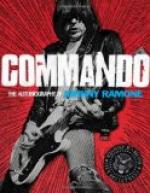When we did not keep such constant guard, we sat or lay listening of an evening to a most discordant noise caused by the singing of psalms and hymns at the same time at different farms. We sometimes joined in. As a people we are not very musical.
The day-watch we liked best. Then we often got a chance of firing a shot at a careless khaki on the Rooirandjes. To some of our young men there was something very exciting in the idea that they were in constant danger. Every now and again a bomb, too, would come flying over the camp, and the whole commando would make for the rocks amid shouts of laughter.
At that time we still felt rather down when there was a fight in prospect. When, some time after our attack on the Rooirandjes, we went to the west of Ladysmith to attack Platrand, we did not feel at all comfortable, although we went voluntarily. It was a lovely ride in the dark at a flying gallop, but when we found on our arrival at Platrand that the promised number of men was not there, we rode away again quite satisfied that we had not to attempt the attack. For had we not made up our minds not to risk a repetition of the attack on Rooirandjes?
The blowing-up of the cannon at Ladysmith is one of the episodes of the war that we look back upon with a feeling of shame. A few days after a Long Tom had been blown up on Umbulwana Kop, east of Ladysmith, I warned our Field-Cornet that the enemy were busy spying in our neighbourhood at night. While on guard, we could distinctly hear the flapping of the saddles and the neighing of the horses in front of us. I foretold a repetition of what had happened on Umbulwana Kop. The Field-Cornet promised that the guard would be doubled that night. Towards morning those of us who were not on guard were waked out of our sleep by a loud cry of ‘Hurrah!’ from the throats of a few hundred Englishmen who were blowing up two cannon on a mountain to our right, close to us. We sprang towards our positions, stumbling and falling over stones, not knowing what was going on, and expecting the khakies at any moment. It was the first time that we had heard a fight at night, and it gave us a creepy feeling. We saw the flames of the guns and from the exploding bullets, and heard the rattling of the shots and the shouting, but we could not join in the fight, as we—eight of us—were not allowed to leave our positions. Now and again a bullet fell in our neighbourhood, and the Free State Artillery, who were on the mountains to the right, fired some bombs at the enemy, nearly hitting us in the dark.
When it got lighter we went to look at the dead and wounded, perhaps from a feeling of bravado, perhaps to accustom ourselves to the sight. The enemy had paid dearly for their brave deed. They know the number of their dead and wounded better than we do, for they had opportunity enough to carry them away. On our side only four were killed and a few wounded. Niemeyer, Van Zyl and Villiers were among the killed. Pott was severely wounded. Niemeyer had several bayonet wounds.




